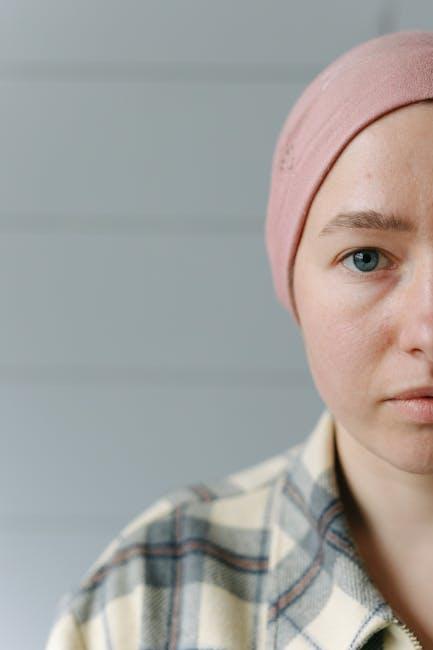In the intricate labyrinth of the human immune system, autoimmune issues often emerge as perplexing and relentless challenges. For many, these conditions feel like unyielding battles waged within, where the body turns against itself in a perplexing dance of malfunction and defense. Yet, amid the countless stories of struggle and adaptation, there are remarkable narratives of hope—accounts where individuals have managed to turn the tide and reclaim their health. This article delves into real stories of reversing autoimmune issues, exploring the journeys of those who have navigated this complex terrain and uncovered pathways toward healing. Through these experiences, we gain insight not only into the science behind autoimmune conditions but also into the resilience and determination that fuel the pursuit of recovery.
Table of Contents
- Unveiling Personal Journeys Toward Healing
- Understanding the Root Causes Beyond Symptoms
- Lifestyle Changes That Made a Tangible Difference
- Therapies and Treatments That Transformed Lives
- Practical Tips for Sustaining Long-Term Wellness
- Q&A
- Final Thoughts

Unveiling Personal Journeys Toward Healing
Everyone’s path to restoring balance after an autoimmune diagnosis is as unique as the individual themselves. For some, the journey began with small, mindful changes in diet and lifestyle, unlocking profound shifts in their body’s response. Others uncovered deep healing through holistic therapies, connecting body, mind, and spirit in a harmonious dance toward wellness. These personal narratives reveal that, beyond the clinical labels, there is a powerful human story of resilience and transformation waiting to be told.
Across these journeys, certain themes emerge as beacons of hope and guidance. Shared experiences highlight the impact of:
- Consistent nutritional adjustments tailored to individual sensitivities
- Stress management techniques like meditation and gentle movement
- Support networks that foster encouragement and growth
- Empowering education about their unique autoimmune triggers and responses
| Key Healing Focus | Common Outcome |
|---|---|
| Elimination of inflammatory foods | Reduced flare-ups |
| Regular mindfulness practice | Improved mental clarity |
| Customized supplement regimens | Enhanced immune regulation |
| Consistent physical activity | Increased energy levels |
Understanding the Root Causes Beyond Symptoms
When we delve deeper into chronic autoimmune conditions, it becomes clear that focusing solely on symptoms often masks the intricate web of triggers beneath. These root causes frequently intertwine genetics, environmental factors, and lifestyle influences that silently fuel inflammation and immune dysfunction. The key to sustainable healing lies in uncovering these hidden elements rather than just patching up visible symptoms. Exploring dietary sensitivities, gut health imbalances, chronic stress levels, and toxin exposure has helped many individuals regain control over their health.
To illustrate, consider a holistic approach that emphasizes personalized assessments over one-size-fits-all treatments. For instance, these common roots often go unaddressed but are critical for long-term remission:
- Leaky gut syndrome — where the intestinal lining lets harmful substances into the bloodstream, triggering immune attack
- Chronic viral or bacterial infections that continuously stimulate immune responses
- Nutrient deficiencies, particularly in vitamin D and omega-3 fatty acids, which regulate immune balance
- Emotional and environmental stressors that dysregulate immune signaling
| Root Cause | Common Indicator | Impact on Autoimmunity |
|---|---|---|
| Gut Dysbiosis | Bloating, fatigue | Triggers systemic inflammation |
| Nutrient Imbalance | Muscle weakness | Weakens immune modulation |
| Chronic Stress | Sleep disruption | Promotes immune hyperactivity |
Lifestyle Changes That Made a Tangible Difference
In many of the documented journeys, individuals discovered that simple yet consistent adjustments to their daily routines sparked profound improvements in their health. Prioritizing whole, unprocessed foods—rich in colorful vegetables and anti-inflammatory fats—emerged as a cornerstone of healing, helping to calm immune responses naturally. Coupled with this, many embraced gentle movement practices such as yoga or walking, which not only enhanced physical well-being but also offered mental clarity and stress relief.
Beyond diet and exercise, attention to the body’s rhythms played a vital role. Quality sleep and mindful stress management became powerful allies in reducing flare-ups. Those who succeeded often adopted the following approaches:
- Consistent sleep schedules to regulate immune function
- Regular hydration with natural mineral water
- Mindfulness techniques including meditation and journaling
- Avoidance of environmental triggers such as harsh chemicals
| Change | Impact | Time to Notice |
|---|---|---|
| Eliminating gluten | Reduced joint pain | 4 weeks |
| Daily 30-min walks | Improved energy levels | 2 weeks |
| Meditation practice | Lower stress markers | 1 month |
| Increased veggie intake | Better digestion | 3 weeks |
Therapies and Treatments That Transformed Lives
Countless individuals have found hope and healing through a blend of innovative and traditional approaches, proving autoimmune conditions don’t have to define a lifetime. From tailored nutritional plans that reduce systemic inflammation to cutting-edge immunotherapy techniques, the landscape of treatment has evolved dramatically. Many patients report profound improvements after integrating mind-body practices such as meditation and yoga, which target stress — a known trigger for autoimmune flare-ups. Incorporating these therapies has shifted the focus from mere symptom management to genuine restoration and balance.
Below is a snapshot of some transformative therapies that have changed lives:
- Functional Medicine: Customized protocols addressing root causes, often combining lab screenings with lifestyle adjustments.
- Photobiomodulation Therapy: Low-level laser therapy shown to modulate immune responses and promote tissue repair.
- Probiotic & Gut-Brain Axis Therapies: Restoring gut flora to reinstate immune harmony.
- Integrative Oncology: For autoimmune issues linked to cancer treatments, blending conventional and alternative medicine.
| Therapy | Primary Benefit | Typical Duration |
|---|---|---|
| Functional Medicine | Root cause resolution | 3-6 months |
| Photobiomodulation | Immune modulation | 4-8 weeks |
| Gut-Brain Axis | Restored microbiome | 2-4 months |
| Integrative Oncology | Holistic support | Varies by patient |
Practical Tips for Sustaining Long-Term Wellness
Unlocking long-term wellness is often less about drastic changes and more about cultivating consistent habits that nurture the body and mind. Prioritize whole, nutrient-dense foods, rich in antioxidants and anti-inflammatory properties, to gently support your immune system’s natural balance. Hydration plays a pivotal role, so aim for adequate water intake each day. Additionally, developing mindful movement routines — such as yoga, tai chi, or simple walks — encourages gentle circulation and stress relief without overwhelming the system. Remember, the key is sustainable shifts, not quick fixes.
Building resilience is also rooted in the quality of rest and emotional well-being. Create evening rituals to signal your body for restorative sleep, and consider practices such as meditation or journaling to process emotions and reduce chronic stress — a known trigger for autoimmune flare-ups. Below is a simple table outlining daily practices and their benefits that many have found essential on their path to reversing symptoms:
| Practice | Benefit | Frequency |
|---|---|---|
| Anti-inflammatory meals | Reduces immune system triggers | Daily |
| Gentle exercise | Improves circulation and mood | 3-5 times/week |
| Mindfulness meditation | Lowers stress hormones | Daily (10-15 mins) |
| Consistent sleep schedule | Enhances cellular repair | Nightly |
Q&A
Q&A: Real Stories of Reversing Autoimmune Issues
Q1: What inspired people to share their stories about reversing autoimmune issues?
A1: Many individuals felt isolated and overwhelmed by their diagnoses. Sharing their journeys became a way to inspire others, highlight hope beyond conventional treatments, and create a supportive community centered on healing and resilience.
Q2: Are these reversals typically complete cures or symptom management?
A2: The stories vary—some people describe full remission where symptoms disappear, while others highlight significant improvements in quality of life and symptom reduction. The term “reversal” often emphasizes reclaiming control rather than an absolute cure.
Q3: What common themes emerge among these real-life reversals?
A3: Several themes stand out: adopting holistic lifestyle changes (diet, stress reduction, sleep), personalized treatment approaches, and a strong support network. Many also credit mindset shifts—embracing patience and self-compassion—as vital to their progress.
Q4: How important is diet in reversing autoimmune symptoms according to these stories?
A4: Diet frequently appears as a cornerstone. Participants often detail experimenting with anti-inflammatory foods, elimination diets, or gut-healing protocols. While no single diet fits all, mindful eating and nutritional awareness are universally emphasized.
Q5: Do medical treatments play a role in these reversals?
A5: Yes, but often in combination with lifestyle adjustments. Some individuals detail strategic use of medications or supplements guided by healthcare professionals, integrating them into broader health frameworks rather than relying on them as sole solutions.
Q6: Can stress management really impact autoimmune conditions?
A6: Absolutely. Many stories underscore how chronic stress exacerbated symptoms, while techniques like meditation, yoga, and therapy helped reduce flare-ups and foster healing environments within the body.
Q7: Are these reversals replicated easily by others with autoimmune diseases?
A7: Each autoimmune condition is unique, and individual responses vary widely. Success often depends on personalized experimentation, professional guidance, and persistence. These stories serve as inspiration rather than prescriptive formulas.
Q8: What message do these real stories convey to those struggling with autoimmune issues?
A8: Hope is the heart of these narratives. They remind readers that autoimmune diagnoses don’t have to mean a permanent sentence and that through patience, informed choices, and holistic care, many find paths to improved health and renewed vitality.
Final Thoughts
In the complex and often confounding world of autoimmune conditions, these real stories of reversal shine a hopeful light. They remind us that behind every diagnosis is a person’s unique journey—one marked by resilience, discovery, and sometimes, transformative change. While science continues to evolve, these accounts encourage us to explore a multitude of paths with an open mind, fostering empowerment and possibility. Ultimately, the stories shared here are not just about overcoming illness; they are about reclaiming life, one step at a time.

